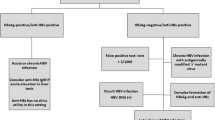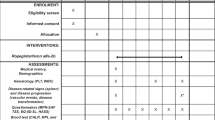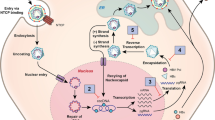Abstract
Ribavirin is a synthetic guanosine analogue, which acts against hepatitis C virus (HCV) through several mechanisms that include 1) immune modulation; 2) inhibition of inosine monophosphate dehydrogenase 3) inhibition of RNA-dependent RNA polymerase; 4) induction of HCV mutagenesis; and 5) modulation of interferon-stimulated gene expression. Addition of ribavirin to peginterferon-α substantially improves sustained virologic response (SVR) and decreases relapse rates. Ribavirin can be associated with hemolytic anemia. However, recent data suggest that SVR is not negatively impacted by treatment-induce anemia. Notably, optimal dosing strategy and the proper management of anemia are crucial to achieve the best treatment outcome. Several advances have been made in the areas relevant to ribavirin, such as the discovery of inosine triphosphatase gene as a promising pharmacogenetic marker and a predictor of anemia, and the role for erythropoiesis-stimulating agent in the management of anemia related to ribavirin use. Recent observations indicate that ribavirin will remain as a critical component of HCV therapy, even in the context of direct acting antivirals.

Similar content being viewed by others
References
Papers of particular interest, published recently, have been highlighted as: • Of importance •• Of major importance
Brok J, Gluud LL, Gluud C. Ribavirin monotherapy for chronic hepatitis C. Cochrane Database Syst Rev 2009:CD005527.
Schalm SW, Hansen BE, Chemello L, et al. Ribavirin enhances the efficacy but not the adverse effects of interferon in chronic hepatitis C. Meta-analysis of individual patient data from European centers. J Hepatol. 1997;26:961–6.
McHutchison JG, Gordon SC, Schiff ER, et al. Interferon alfa-2b alone or in combination with ribavirin as initial treatment for chronic hepatitis C. Hepatitis interventional therapy group. N Engl J Med. 1998;339:1485–92.
Poynard T, Marcellin P, Lee SS, et al. Randomised trial of interferon α2b plus ribavirin for 48 weeks or for 24 weeks versus interferon α2b plus placebo for 48 weeks for treatment of chronic infection with hepatitis C virus. International Hepatitis Interventional Therapy Group (IHIT). Lancet. 1998;352:1426–32.
Manns MP, McHutchison JG, Gordon SC, et al. Peginterferon alfa-2b plus ribavirin compared with interferon alfa-2b plus ribavirin for initial treatment of chronic hepatitis C: a randomised trial. Lancet. 2001;358:958–65.
Fried MW, Shiffman ML, Reddy KR, et al. Peginterferon alfa-2a plus ribavirin for chronic hepatitis C virus infection. N Engl J Med. 2002;347:975–82.
Hadziyannis SJ, Sette Jr H, Morgan TR, et al. Peginterferon-α2a and ribavirin combination therapy in chronic hepatitis C: a randomized study of treatment duration and ribavirin dose. Ann Intern Med. 2004;140:346–55.
Wade JR, Snoeck E, Duff F, Lamb M, Jorga K. Pharmacokinetics of ribavirin in patients with hepatitis C virus. Br J Clin Pharmacol. 2006;62:710–4.
Reddy KR, Nelson DR, Zeuzem S. Ribavirin: current role in the optimal clinical management of chronic hepatitis C. J Hepatol. 2009;50:402–11.
Herrmann E, Lee JH, Marinos G, Modi M, Zeuzem S. Effect of ribavirin on hepatitis C viral kinetics in patients treated with pegylated interferon. Hepatology. 2003;37:1351–8.
Dahari H, Ribeiro RM, Perelson AS. Triphasic decline of hepatitis C virus RNA during antiviral therapy. Hepatology. 2007;46:16–21.
Rehermann B, Hepatitis C. virus versus innate and adaptive immune responses: a tale of coevolution and coexistence. J Clin Invest. 2009;119:1745–54.
Hofmann WP, Herrmann E, Sarrazin C, Zeuzem S. Ribavirin mode of action in chronic hepatitis C: from clinical use back to molecular mechanisms. Liver Int. 2008;28:1332–43.
Cramp ME, Rossol S, Chokshi S, Carucci P, Williams R, Naoumov NV. Hepatitis C virus-specific T-cell reactivity during interferon and ribavirin treatment in chronic hepatitis C. Gastroenterology. 2000;118:346–55.
Feld JJ, Hoofnagle JH. Mechanism of action of interferon and ribavirin in treatment of hepatitis C. Nature. 2005;436:967–72.
Cornberg M, Hinrichsen H, Teuber G, et al. Mycophenolate mofetil in combination with recombinant interferon alfa-2a in interferon-nonresponder patients with chronic hepatitis C. J Hepatol. 2002;37:843–7.
McHutchison JG, Shiffman ML, Cheung RC, et al. A randomized, double-blind, placebo-controlled dose-escalation trial of merimepodib (VX-497) and interferon-α in previously untreated patients with chronic hepatitis C. Antivir Ther. 2005;10:635–43.
Lau JY, Tam RC, Liang TJ, Hong Z. Mechanism of action of ribavirin in the combination treatment of chronic HCV infection. Hepatology. 2002;35:1002–9.
Crotty S, Maag D, Arnold JJ, et al. The broad-spectrum antiviral ribonucleoside ribavirin is an RNA virus mutagen. Nat Med. 2000;6:1375–9.
Hofmann WP, Polta A, Herrmann E, et al. Mutagenic effect of ribavirin on hepatitis C nonstructural 5B quasispecies in vitro and during antiviral therapy. Gastroenterology. 2007;132:921–30.
Asselah T, Bieche I, Narguet S, et al. Liver gene expression signature to predict response to pegylated interferon plus ribavirin combination therapy in patients with chronic hepatitis C. Gut. 2008;57:516–24.
Chen L, Borozan I, Sun J, et al. Cell-type specific gene expression signature in liver underlies response to interferon therapy in chronic hepatitis C infection. Gastroenterology 2010;138:1123–33 e1-3.
•• Feld JJ, Nanda S, Huang Y, et al. Hepatic gene expression during treatment with peginterferon and ribavirin: Identifying molecular pathways for treatment response. Hepatology 2007;46:1548–63. The recent proposed mechanism of ribavirin in HCV therapy has been well studied in this research work. The authors found that induction of interferon-stimulated cytokines correlated with viral kinetics following ribavirin therapy, suggesting that ribavirin promotes interferon signaling pathway.
• Thomas E, Feld JJ, Li Q, Hu Z, Fried MW, Liang TJ. Ribavirin potentiates interferon action by augmenting interferon-stimulated gene induction in hepatitis C virus cell culture models. Hepatology 2011;53:32–41. Recent meta-analysis demonstrated the importance of adding ribavirin to interferon-based therapy for HCV by significantly improved SVR and reduced virological relapse.
Feld JJ, Lutchman GA, Heller T, et al. Ribavirin improves early responses to peginterferon through improved interferon signaling. Gastroenterology 2010;139:154–62 e4.
Brok J, Gluud LL, Gluud C. Meta-analysis: ribavirin plus interferon vs. interferon monotherapy for chronic hepatitic C - an updated Cochrane review. Aliment Pharmacol Ther. 2010;32:840–50.
Ghany MG, Strader DB, Thomas DL, Seeff LB. Diagnosis, management, and treatment of hepatitis C: an update. Hepatology. 2009;49:1335–74.
Jacobson IM, Brown Jr RS, Freilich B, et al. Peginterferon alfa-2b and weight-based or flat-dose ribavirin in chronic hepatitis C patients: a randomized trial. Hepatology. 2007;46:971–81.
Lindahl K, Stahle L, Bruchfeld A, Schvarcz R. High-dose ribavirin in combination with standard dose peginterferon for treatment of patients with chronic hepatitis C. Hepatology. 2005;41:275–9.
Ferenci P, Brunner H, Laferl H, et al. A randomized, prospective trial of ribavirin 400 mg/day versus 800 mg/day in combination with peginterferon alfa-2a in hepatitis C virus genotypes 2 and 3. Hepatology. 2008;47:1816–23.
Singal AK, Anand BS. Tailoring treatment duration to 12 to 16 weeks in hepatitis C genotype 2 or 3 with rapid virologic response: systematic review and meta-analysis of randomized controlled trials. J Clin Gastroenterol. 2010;44:583–7.
Russmann S, Grattagliano I, Portincasa P, Palmieri VO, Palasciano G. Ribavirin-induced anemia: mechanisms, risk factors and related targets for future research. Curr Med Chem. 2006;13:3351–7.
De Franceschi L, Fattovich G, Turrini F, et al. Hemolytic anemia induced by ribavirin therapy in patients with chronic hepatitis C virus infection: role of membrane oxidative damage. Hepatology. 2000;31:997–1004.
Grattagliano I, Russmann S, Palmieri VO, et al. Low membrane protein sulfhydrils but not G6PD deficiency predict ribavirin-induced hemolysis in hepatitis C. Hepatology. 2004;39:1248–55.
Balan V, Schwartz D, Wu GY, et al. Erythropoietic response to anemia in chronic hepatitis C patients receiving combination pegylated interferon/ribavirin. Am J Gastroenterol. 2005;100:299–307.
Dieterich DT, Wasserman R, Brau N, et al. Once-weekly epoetin alfa improves anemia and facilitates maintenance of ribavirin dosing in hepatitis C virus-infected patients receiving ribavirin plus interferon alfa. Am J Gastroenterol. 2003;98:2491–9.
Afdhal NH, Dieterich DT, Pockros PJ, et al. Epoetin alfa maintains ribavirin dose in HCV-infected patients: a prospective, double-blind, randomized controlled study. Gastroenterology. 2004;126:1302–11.
Bronowicki JP, Ouzan D, Asselah T, et al. Effect of ribavirin in genotype 1 patients with hepatitis C responding to pegylated interferon alfa-2a plus ribavirin. Gastroenterology. 2006;131:1040–8.
•• Reddy KR, Shiffman ML, Morgan TR, et al. Impact of ribavirin dose reductions in hepatitis C virus genotype 1 patients completing peginterferon alfa-2a/ribavirin treatment. Clin Gastroenterol Hepatol 2007;5:124–9. Large retrospective analysis suggesting that ribavirin dose reduction to less than 60% of expected accumulative dose has negative impact on SVR.
McHutchison JG, Lawitz EJ, Shiffman ML, et al. Peginterferon alfa-2b or alfa-2a with ribavirin for treatment of hepatitis C infection. N Engl J Med. 2009;361:580–93.
•• Sulkowski MS, Shiffman ML, Afdhal NH, et al. Hepatitis C virus treatment-related anemia is associated with higher sustained virologic response rate. Gastroenterology 2010;139:1602–11, 11 e1. An important retrospective analysis from the IDEAL study that made the observation that anemia was a predictor of response and that early anemia treated with ESA had high SVR.
Shiffman ML, Salvatore J, Hubbard S, et al. Treatment of chronic hepatitis C virus genotype 1 with peginterferon, ribavirin, and epoetin α. Hepatology. 2007;46:371–9.
Bohlius J, Schmidlin K, Brillant C, et al. Recombinant human erythropoiesis-stimulating agents and mortality in patients with cancer: a meta-analysis of randomised trials. Lancet. 2009;373:1532–42.
Singh AK, Szczech L, Tang KL, et al. Correction of anemia with epoetin alfa in chronic kidney disease. N Engl J Med. 2006;355:2085–98.
•• Fellay J, Thompson AJ, Ge D, et al. ITPA gene variants protect against anaemia in patients treated for chronic hepatitis C. Nature 2010;464:405–8. Landmark paper on the promising genetic variants (ITPA gene) related to ribavirin-induced anemia.
Thompson AJ, Fellay J, Patel K, et al. Variants in the ITPA gene protect against ribavirin-induced hemolytic anemia and decrease the need for ribavirin dose reduction. Gastroenterology. 2010;139:1181–9.
Kurosaki M, Tanaka K, Suzuki Y, et al. The ITPA genotype correlated with hemolytic anemia and outcome after treatment with pegylated-interferon and ribavirin in genotype 1b chronic hepatitis C [abstract 469]. In: 46th Annual Meeting of the European Association for Study of the Liver (EASL). Berlin, Germany.
Shields WW, Pockros PJ. Ribavirin analogs. Clin Liver Dis. 2009;13:419–27.
Benhamou Y, Afdhal NH, Nelson DR, et al. A phase III study of the safety and efficacy of viramidine versus ribavirin in treatment-naive patients with chronic hepatitis C: ViSER1 results. Hepatology. 2009;50:717–26.
Marcellin P, Gish RG, Gitlin N, et al. Safety and efficacy of viramidine versus ribavirin in ViSER2: randomized, double-blind study in therapy-naive hepatitis C patients. J Hepatol. 2010;52:32–8.
Poordad F, Lawitz E, Shiffman ML, et al. Virologic response rates of weight-based taribavirin versus ribavirin in treatment-naive patients with genotype 1 chronic hepatitis C. Hepatology. 2010;52:1208–15.
Rustgi VK, Lee WM, Lawitz E, et al. Merimepodib, pegylated interferon, and ribavirin in genotype 1 chronic hepatitis C pegylated interferon and ribavirin nonresponders. Hepatology. 2009;50:1719–26.
•• Hezode C, Forestier N, Dusheiko G, et al. Telaprevir and peginterferon with or without ribavirin for chronic HCV infection. N Engl J Med 2009;360:1839–50. An important and randomized clinical trial that demonstrated the importance of ribavirin in DDA-based treatment regimen.
Kwo PY, Lawitz EJ, McCone J, et al. Efficacy of boceprevir, an NS3 protease inhibitor, in combination with peginterferon alfa-2b and ribavirin in treatment-naive patients with genotype 1 hepatitis C infection (SPRINT-1): an open-label, randomised, multicentre phase 2 trial. Lancet. 2010;376:705–16.
McHutchison JG, Manns MP, Muir AJ, et al. Telaprevir for previously treated chronic HCV infection. N Engl J Med. 2010;362:1292–303.
Pockros PJ, Nelson D, Godofsky E, et al. R1626 plus peginterferon Alfa-2a provides potent suppression of hepatitis C virus RNA and significant antiviral synergy in combination with ribavirin. Hepatology. 2008;48:385–97.
Zeuzem S, Buggisch P, Agarwal K, et al. Dual, triple, and quadruple combination treatment with a protease inhibitor (GS-9256) and a polymerase inhibitor (GS-9190) alone and in combination with ribavirin or peginterferon/ribavirin for up to 28 days in treatment naive, genotype 1 HCV subjects. Hepatology. 2010;52:400A.
Sulkowski MS, Reddy KR, Afdhal NH, et al. Anemia had no effect on efficacy outcomes in treatment-naive patients who recieved telaprevir-based regimen in the ADVANCE and ILLUMINATE Phase 3 studies [abstract 477]. In: 46th Annual Meeting of the European Association for Study of the Liver (EASL). Berlin, Germany.
Sulkowski MS, Poordad F, Manns M, et al. Anemia during treatment with peginterferon alfa-2b/ribavirin with or without boceprevir is associated with higher SVR rates: analysis of previously untreated and previous treatment failure patients [abstract 476]. In: 46th Annual Meeting of the European Association for Study of the Liver (EASL) March 30 - April 3, 2011; Berlin, Germany.
Disclosure
K. Rajender Reddy received grants from Merck, Roche, Vertex, Tiboec, BMS and Gilead. He has received payment for development of educational presentations from CME activites-ViralEd and Rush University, and has also received payment from the American Board of Internal Medicine, Gastroenterology, Uptodate, and the Chronic Liver Disease Foundation; Chalermrat Bunchorntavakul reported no potential conflicts of interest relevant to this article.
Author information
Authors and Affiliations
Corresponding author
Rights and permissions
About this article
Cite this article
Bunchorntavakul, C., Reddy, K.R. Ribavirin: How Does it Work and is it Still Needed?. Curr Hepatitis Rep 10, 168–178 (2011). https://doi.org/10.1007/s11901-011-0102-6
Published:
Issue Date:
DOI: https://doi.org/10.1007/s11901-011-0102-6
Keywords
- Ribavirin
- Hepatitis C Virus (HCV)
- Treatment
- Sustained Virologic Response (SVR)
- Relapse
- Mechanisms of action
- IMPDH inhibitor
- Mutagenesis
- Ribavirin-induced anemia
- Hemolysis
- Pegylated interferon
- Peginterferon-alfa
- ITPA gene
- Taribavirin
- Interferon signaling pathway
- Weight-based dosing
- Direct Acting Anti-viral (DAA)
- Erythropoiesis-stimulating agent
- Epoetin




